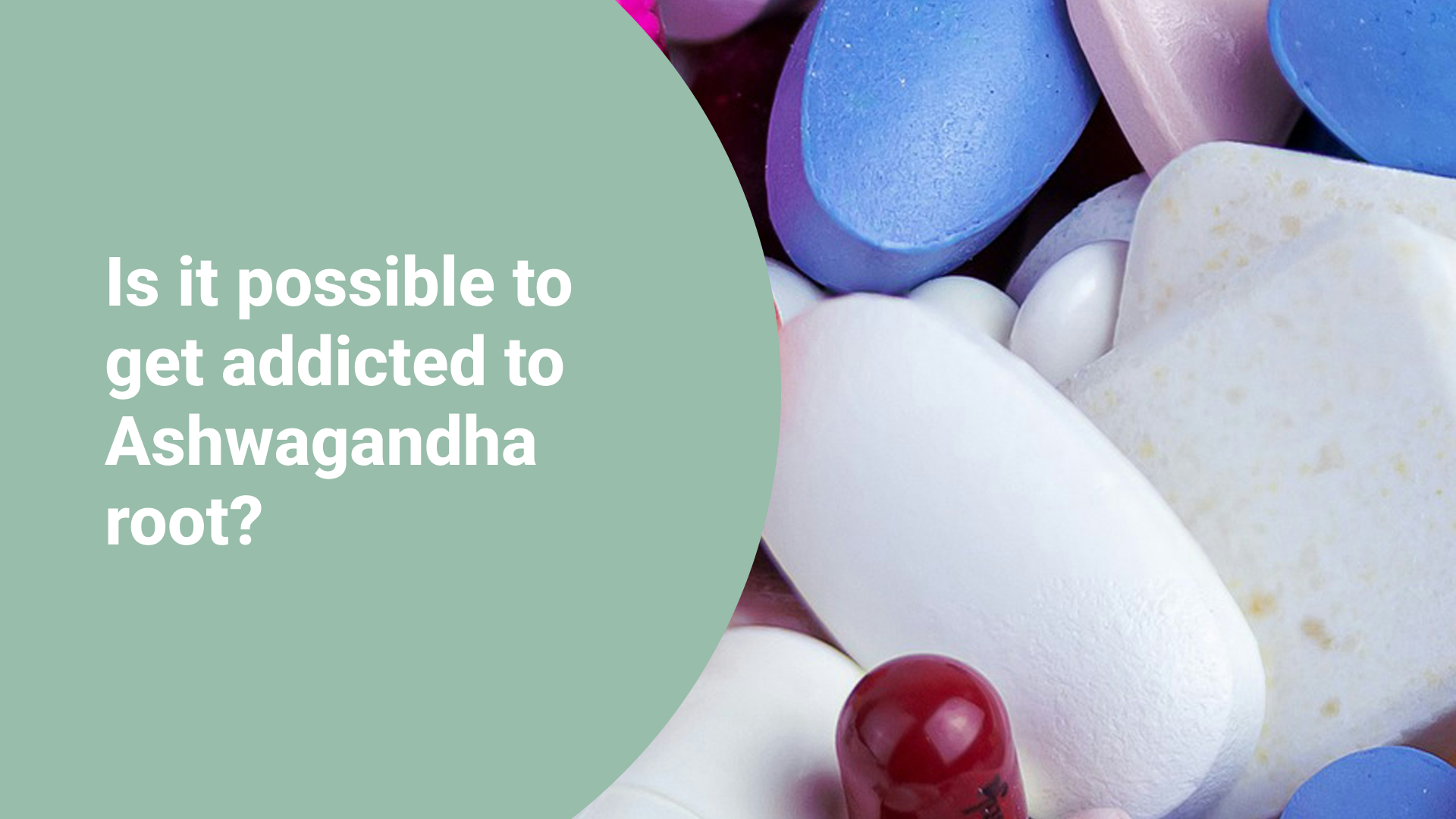Is Ashwagandha Root Addictive?

Ashwagandha Expert is a project that offers the most accurate information in an accessible, understandable and applicable way so that readers can make the best...Read more
✅ Evidence-Based
⚙️ Methodology
From the author:
Ashwagandha is an effective adaptogen for stress and anxiety reduction.
Many people turn to Ashwagandha to manage stress, enhance sleep, and boost overall well-being. While some benefit greatly from Ashwagandha, results may vary.
I noticed a positive impact on my sleep quality, experiencing better dreams and waking up less tired — a significant improvement for someone dealing with chronic fatigue.
But then I realized something about myself. I thought I would sleep poorly on the days I didn’t take Ashwagandha (I only used it for a few weeks). My mind thought I needed Ashwagandha to sleep.
At that time, a question came to my mind; Is it possible to get addicted to Ashwagandha root?
Understanding addiction
Addiction is a serious health issue affecting the brain and behavior. It involves compulsive drug use despite harmful consequences. This chronic disease alters the brain’s reward and memory circuits, making it challenging to stop drug or alcohol use and leading to physical and psychological dependence with withdrawal symptoms upon cessation.
Various factors contribute to addiction, such as genetics, environment, and personal history.
It’s crucial to recognize that addiction is not a choice or moral failing but a treatable disease. Treatment options encompass medication, therapy, and support groups. Seeking help promptly is vital, as untreated addiction can result in severe health issues, including overdose and death.
It’s worth noting that not all drugs are addictive; substances like caffeine or nicotine may cause dependence but usually don’t lead to addiction. Additionally, not everyone who uses drugs or alcohol develops addiction.
What does science say about Ashwagandha?
No studies have highlighted any addictive effects of Ashwagandha. Users also report experiencing no addictive effects with Ashwagandha.
If you feel dependent on Ashwagandha, it’s probably because you’ve trained yourself to believe you can’t sleep without it.
Using Ashwagandha in advised amounts (250-500 mg) for up to 2 months is safe.
The dopamine effect of Ashwagandha
Ashwagandha contains bioactive ingredients that impact your central nervous system. Its role is to calm the sympathetic nervous system, reducing stress hormone release for better stress management.
Ashwagandha positively influences mood by enhancing dopamine and supporting crucial hormones like testosterone, estrogen, cortisol, and DHEA.
In a rat study, Withania somnifera extract boosted dopamine D2 receptor binding when administered orally.
While human studies on Ashwagandha’s impact on dopamine are limited, user experiences suggest a positive connection. The herb’s calming effects help manage stress and neurological imbalances, leading to increased dopamine levels.
Ashwagandha’s calming properties not only suppress dopamine receptors but also alleviate stress-induced spikes in plasma corticosterone, blood urea nitrogen, and blood lactic acid, promoting a balanced state.
Despite its debated dopamine-boosting effect, using Ashwagandha won’t create dependence. It does not contain addictive substances or ingredients and is not a psychoactive drug.
Warning:
Parkinson’s Disease
Attention Deficit Hyperactivity Disorder (ADHD)
Obsessive-compulsive disorder (OCD)
Post-traumatic stress disorder (PTSD)
Panic attacks
Premenstrual dysphoric disorder (PMDD)
Spectrum Autism Disorder (SAD)
Social Anxiety Disorder
Motor Disorders
Any neurodevelopmental disorder
Chronic depression
Bipolar disorder
Can you overdose on Ashwagandha?
Ashwagandha can lead to an overdose, even if you’re generally healthy. Overdosing on Ashwagandha may cause issues like digestive and respiratory distress. It’s important to be aware of these symptoms.
A study in the Journal of Ayurveda and Integrative Medicine found that Ashwagandha may cause mild gastrointestinal problems like diarrhea, upset stomach, and nausea.
The ideal Ashwagandha dose remains uncertain. While 250-500 mg is suggested as a minimum, individual responses vary—some find 50 mg effective, while others need 1G. Experimentation is necessary to find what works best.
Symptoms of Ashwagandha overdose may include:
- Nausea
- Deep sleep, strange dreams and nightmares
- Allergic reactions
- Vomiting
- Depressed mood and sadness
- Diarrhea
Before trying Ashwagandha, consult your doctor to ensure it’s right for you.
Who should not use Ashwagandha?
Adaptogens like Ashwagandha may pose risks in certain situations:
- Avoid during pregnancy or breastfeeding.
- Not recommended for those with autoimmune diseases or thyroid disorders.
- Caution when using other antidepressant or sedative medications.
- Avoid combining with alcohol or other medications.
Ashwagandha Expert is a project that offers the most accurate information in an accessible, understandable and applicable way so that readers can make the best possible decisions about the Ashwagandha plant and its use.
More Posts





